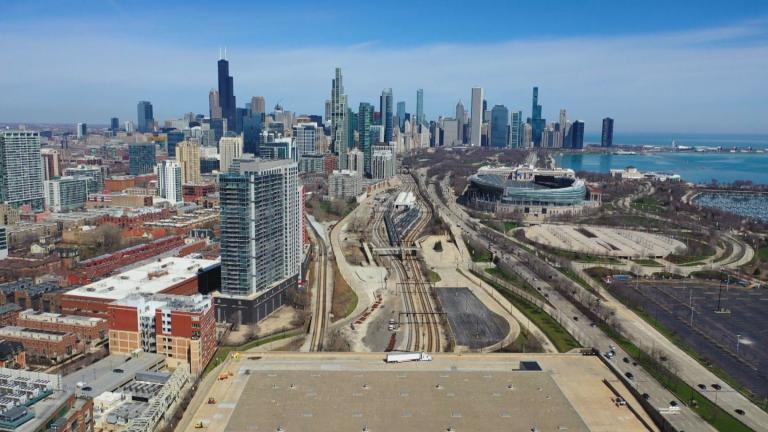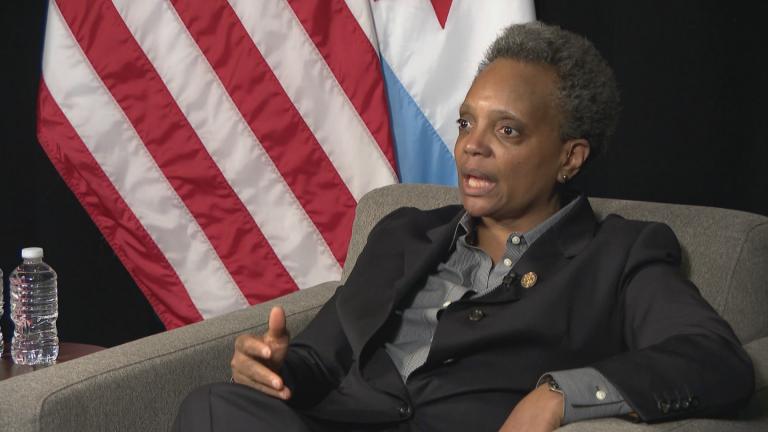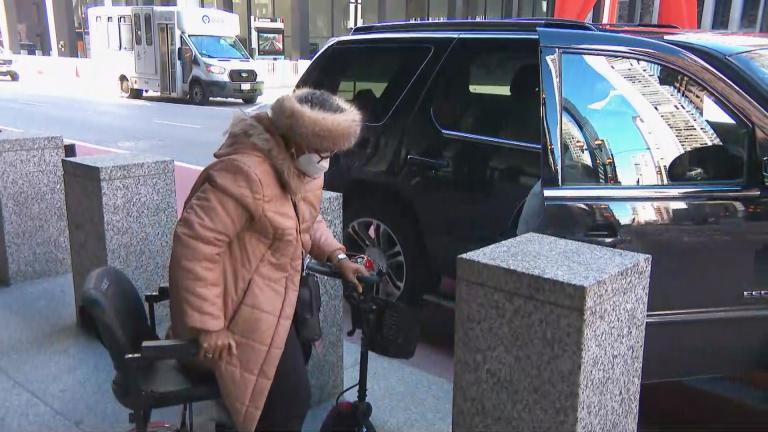The $1 trillion bipartisan infrastructure plan signed into law Monday by President Joe Biden includes $1.7 billion that will help Chicago “kick-start” lagging efforts to replace lead service lines responsible for contaminating the tap water in homes across the city, Mayor Lori Lightfoot said.
Lightfoot traveled to Washington, D.C. on Monday and looked on as Biden signed the law during a ceremony on the South Lawn of the White House.
“There is a lot of different nooks and crannies in this bill that are going to be incredibly beneficial to Chicagoans,” Lightfoot told “Chicago Tonight.”
While the infrastructure plan approved Tuesday by the Senate includes a total of $55 billion to improve the country’s water infrastructure to ensure universal access to clean drinking water, the amount set aside for lead service line replacement projects was slashed by two-thirds during negotiations designed to win the support of enough Republican senators needed to pass the 60-vote threshold and break a filibuster.
Approximately 400,000 Chicago homes are linked by lead service lines to the city’s water mains buried under city streets, the most of any American city. The metal can leach a brain-damaging chemical into drinking water.
Lightfoot said she was not certain precisely how much money Chicago could expect to get to replace lead service lines, but said removing those lines was a “huge priority.”
“This is going to kick-start everything,” Lightfoot said. “It will make a significant difference, not only to expand the number of homes that we can reach but also a shortened time period.”
Chicago officials required that lead pipes be used to funnel water to single-family homes and small apartment buildings for nearly a century. Federal law banned the use of lead pipes in 1986, when it was discovered that they could cause brain-damaging toxins to leach into the water.
There is no safe level of lead in drinking water, according to federal officials. Lead is a neurotoxin and can be especially damaging to children and pregnant women.
Members of the U.S. House are expected to vote before Thanksgiving for a $1.75 trillion package that the U.S. Senate is likely to pass with only Democratic votes.
Democratic leaders are weighing whether to include additional funding for lead service line removal projects in the second bill, which has yet to be finalized, sources told WTTW News.
Lightfoot said she was hopeful more funds would be earmarked for lead service line removal in the second bill.
Lightfoot laid out a plan to replace all of those lead service lines, but acknowledged that the city could not afford the $8.5 billion cost. City officials estimate that it will cost $15,000 to $26,000 to remove lead service lines from each home or two-flat in Chicago.
Between September 2020 and October 2021, city crews had replaced just 10 lead service lines, even though Lightfoot’s plan called for 650 lead service lines to be replaced in 2021.
Lightfoot said she expected a pilot program to determine the best way to replace lead service lines when city crews replace or repair the water mains under the street in front of homes, in an effort to minimize the disruption caused by the construction and save money, to be completed by the end of 2021 or early 2022.
Illinois law will require that Chicago replace homes’ service lines as they replace water mains starting in 2023. By then, Chicago will have finished a 10-year effort to replace 880 miles of century-old, cast-iron water mains.
The infrastructure bill will also allow the city to tackle years of deferred and delayed maintenance of roads, bridges, tunnels and underpasses, Lightfoot said.
While the city is “whittling away” at that backlog, the federal funds will “significantly” improve that effort while creating thousands of jobs, Lightfoot said.
“We've got issues all over the city,” Lightfoot said.
The bill will also fuel efforts to extend the Red Line south to 130th Street, as well as economic development efforts along the train tracks and funds to transform the CTA’s bus fleet with all-electric vehicles, Lightfoot said.
“This is real money to actually start the process of making it happen,” Lightfoot said.
Contact Heather Cherone: @HeatherCherone | (773) 569-1863 | [email protected]








